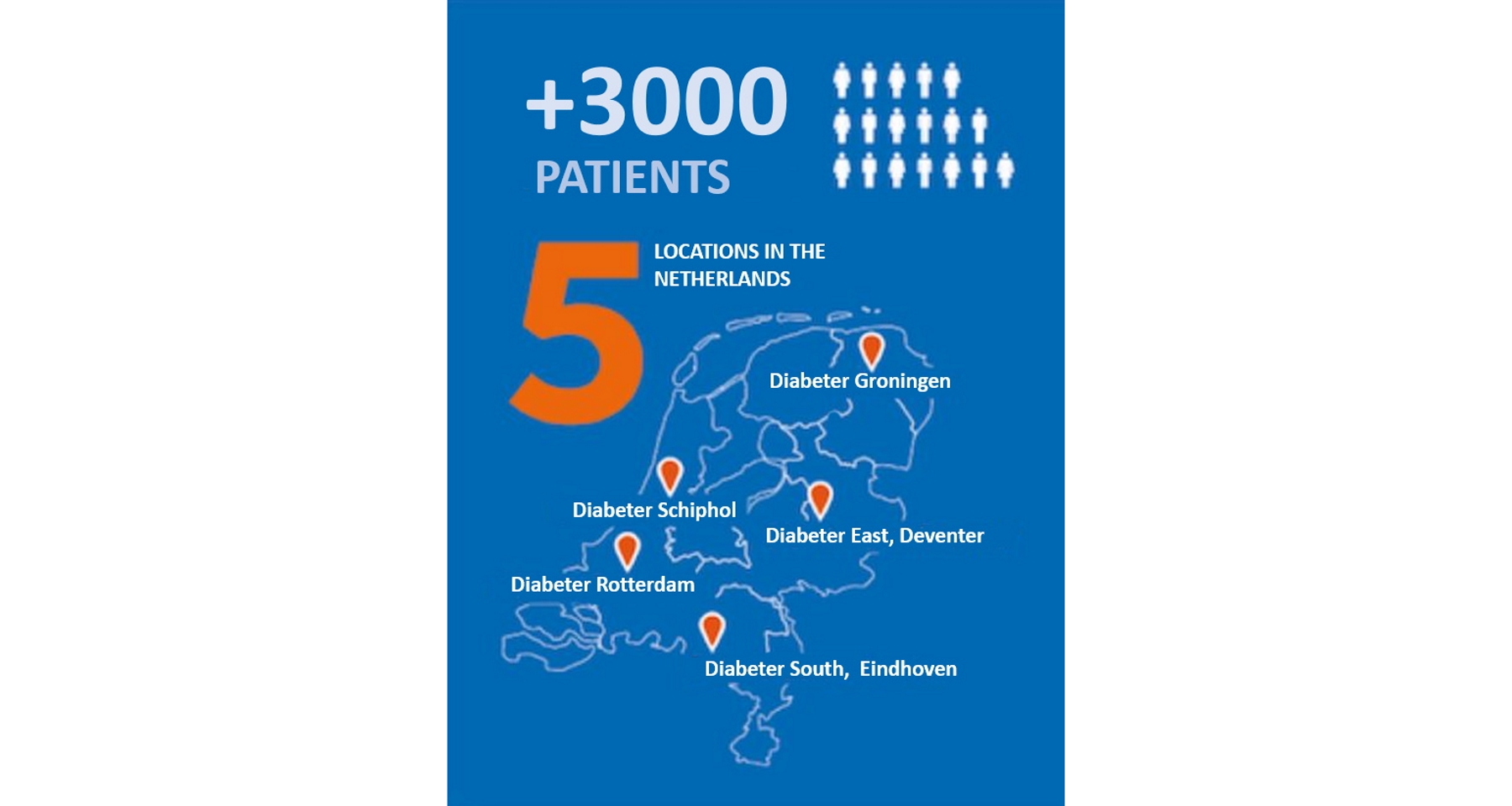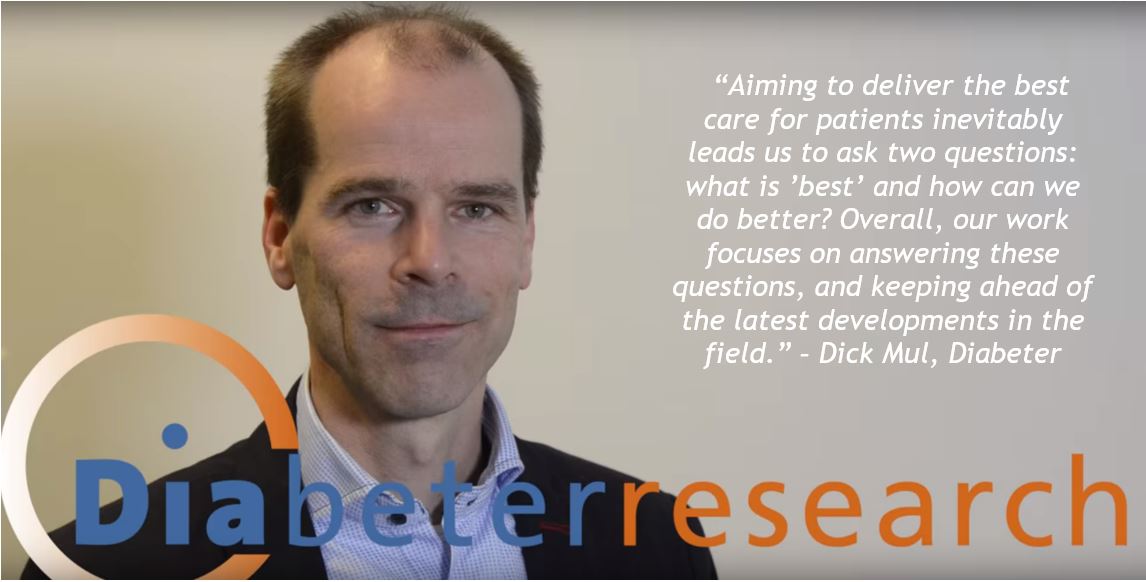Diabeter is a center for type 1 diabetes care and research. Based in the Netherlands, we are one of the largest specialized centers in Europe, currently managing over 3,000 people with diabetes.

Conducting scientifically sound research that leads to a better understanding of type 1 diabetes and its treatment is an important goal of our work. By expanding knowledge about diabetes, we can help towards the development of new forms of treatment of the disease and its complications, as well as find ways to prevent or cure the disease.

Several key principles form the basis of our approach to research:
The central theme of our research is to identify and characterize the heterogeneity of type 1 diabetes and the implications for care. The “one-size-fits-all” approach to managing diabetes no longer applies. Type 1 diabetes is not a single disease, but comes in different ‘versions’. Differences in the age of onset, in the development of medical complications, and in the effects of treatments and interventions, point to an extensive heterogeneity and different disease stages. At Diabeter we can combine new research data with the extensive clinical datasets collected in our disease management system (Vcare). This allows us to dissect this heterogeneity, define the stages of the disease, and develop ways to apply this knowledge to new interventions that improve care.
Our research into heterogeneity focuses on three main areas:
The individual studies conducted within each of these areas are discussed in detail elsewhere on this site.
Diabeter has formed strong alliances with other institutions, enabling us to collaborate on research projects. Examples include work with:
If you would like more information about the work that we do, or have a specific question or proposal, please contact us via this website or email us at research@diabeter.nl.